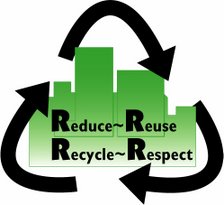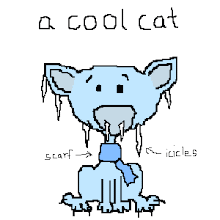 SaveDarfur.org has a post called "Background" that's worth checking out...
SaveDarfur.org has a post called "Background" that's worth checking out...DOWNLOAD: Policy Talking Points (Updated 3/30/07)Darfur has been embroiled in a deadly conflict for over three years. At least 400,000 people…
How did the conflict start?
The conflict began in the arid and impoverished region early in 2003 after a rebel group began attacking government targets, saying the region was being neglected by Khartoum.
The rebels say the government is oppressing black Africans in favour of Arabs.
Darfur, which means land of the Fur, has faced many years of tension over land and grazing rights between the mostly nomadic Arabs, and farmers from the Fur, Massaleet and Zagawa communities.
There are two main rebel groups, the Sudan Liberation Army (SLA) and the Justice and Equality Movement (Jem), although the peace talks were complicated by splits in both groups, some along ethnic lines.
The groups opposed to May 2006 peace deal with the government have now merged into the National Redemption Front led by former Darfur governor Ahmed Diraige.
What is the government doing?
It admits mobilising "self-defence militias" following rebel attacks but denies any links to the Janjaweed, accused of trying to "cleanse" black Africans from large swathes of territory.
Refugees from Darfur say that following air raids by government aircraft, the Janjaweed ride into villages on horses and camels, slaughtering men, raping women and stealing whatever they can find.
Many women report being abducted by the Janjaweed and held as sex slaves for more than a week before being released.
The US and some human rights groups say that genocide is taking place - though a UN investigation team sent to Sudan said that while war crimes had been committed, there had been no intent to commit genocide.
Sudan's government denies being in control of the Janjaweed and President Omar al-Bashir has called them "thieves and gangsters".
After strong international pressure and the threat of sanctions, the government promised to disarm the Janjaweed. But so far there is little evidence this has happened.
Trials have been announced in Khartoum of some members of the security forces suspected of abuses - but this is viewed as part of a campaign against UN-backed attempts to get some 50 key suspects tried at the International Criminal Court in The Hague.
What has happened to Darfur's civilians?
Millions have fled their destroyed villages, with many heading for camps near Darfur's main towns. But there is not enough food, water or medicine.
The Janjaweed patrol outside the camps and Darfurians say the men are killed and the women raped if they venture too far in search of firewood or water.
The Janjaweed are accused of 'ethnic cleansing'Some 200,000 have also sought safety in neighbouring Chad, but many of these are camped along a 600km stretch of the border and remain vulnerable to attacks from Sudan.
The refugees are also threatened by the diplomatic fallout between Chad and Sudan as the neighbours accuse one another of supporting each other's rebel groups.
Chad's eastern areas have a similar ethnic make-up to Darfur.
Many aid agencies are working in Darfur but they are unable to get access to vast areas because of the fighting.
How many have died?
With much of Darfur inaccessible to aid workers and researchers, calculating how many deaths there have been in the past three years is impossible.
What researchers have done is to estimate the deaths based on surveys in areas they can reach.
The latest research published in September 2006 in the journal Science puts the numbers of deaths above and beyond those that would normally die in this inhospitable area at "no fewer than 200,000".
The US researchers say that their figures are the most compelling and persuasive estimate to date. They have made no distinction between those dying as a result of violence and those dying as a result of starvation or disease in refugee camps.
Accurate figures are crucial in determining whether the deaths in Darfur are genocide or - as the Sudanese government says - the situation is being exaggerated.
What happened to the peace deal?
SLA leader Minni Minawi, who signed the May peace deal, was given a large budget, but his fighters have already been accused by Amnesty International of abuses against people in areas opposed to the peace deal.
The smaller SLA faction and Jem did not sign the deal.
There has been a dramatic increase in violence and displacement since the deal was signed.
With the peace deal looking unworkable and amid fears of renewed "all-out war", there appears little prospect of people returning to their villages for some time yet.
Is anyone trying to stop the fighting?
About 7,000 African Union troops have slowly been deployed in Darfur on a very limited mandate.
Experts say the soldiers are too few to cover an area the size of France, and the African Union says it does not have the money to fund the operation for much longer.
Sudan has resisted strong western diplomatic pressure for the UN to take control of the peacekeeping mission. The latest plan envisages a more than doubling of numbers and a hybrid force with much greater UN involvement but at present Sudan says it will allow just 3,000 extra troops.
In April 2006, the UN Security Council passed a resolution imposing sanctions against four Sudanese nationals accused of war crimes in Darfur that include two rebel leaders, a former air force chief, and a Janjaweed militia leader.
A dossier of evidence compiled by a UN commission has also been passed to the ICC in The Hague, along with the names of top war crimes suspects.
Will sanctions be imposed?
The US and the UK have long threatened international sanctions against Sudan, unless it agrees to having more UN peacekeepers in Darfur.
But such threats have so far achieved little, as Sudan's allies Russia and China have used their veto in the UN Security Council to block tough resolutions.
The US imposed sanctions on Sudan in 1997 because of its previous ties to Osama Bin Laden. Under these, Sudanese firms cannot use US dollars, making international trade more difficult.
On 29 May 2007, the US announced fresh sanctions targeting Sudanese companies and individuals involved in the violence in Darfur.
It banned 30 Sudanese companies, mostly in the oil business, and three individuals from trading or banking with the US.
On the same day, President Bush also announced a push for new UN Security Council sanctions.














